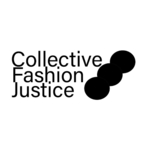NEW YORK–(BUSINESS WIRE)–A new report, ‘Leather’s impact on the planet,’ released by the fashion non-profit organization, Collective Fashion Justice, is the second in a new series titled ‘Under Their Skin.’ The latest report unveils never-before-shared research around the environmental harms and effects that the leather supply chain has on climate, land use, water, among other destructive impacts on our planet.
The report reveals a wealth of data and research surrounding the destruction linked to cattle skin and leather production, tanning, and product manufacturing, such as:
- Leather is land inefficient: producing just 10 bags from Brazilian leather can result in 1 hectare of deforestation
- Cow leather boots can have a carbon cost nearly 7 times greater than synthetic leather, which is outdone again by the minimal CO2e impact of bio-based alternatives
- 170 unique chemicals utilized in conventional leather tanning pose significant risks for soil, wildlife agricultural land, and air pollution
‘Leather’s impact on the planet’ debunks common myths made around animal leather by powerful leather trade industries and lobbyists and encourages the fashion industry and citizen consumers to look beyond green-washed claims made by certifications and brands.
Important call outs from the report include:
- New analysis of greenwashed marketing used by the industry’s predominant certification – the Leather Working Group – and member brands such as Michael Kors, Marc O’Polo, Massimo Dutti
- Analysis of leather and beef trade lobbying efforts at halting climate action and escaping targets and policy addressing methane and deforestation
- Details of the largely undisclosed use of fossil-fuel derived plastics in animal leather processing and finishing
- A detailed breakdown of ‘regenerative leather’ claims and the science questioning its legitimacy
“The fashion industry cannot wrangle its contribution to the climate crisis and interlinked biodiversity crisis without acting on leather. The lobbying and greenwashing from the leather industry is actively preventing environmental progress in fashion, and we’re urging the industry to pay attention, set clear targets to phase leather out, and choose more responsible alternatives,” said Emma Hakansson, founding director of Collective Fashion Justice. “To give fashion its best shot at aligning with IPCC and United Nations climate and environmental targets, we must look critically at materials and move beyond both virgin fossil fuels and animal inputs which disproportionately contribute to negative impacts in the supply chain.”
The ‘Leather’s impact on the planet’ report offers recommendations for a just transition away from leather production, instead using and investing in innovative leather alternative materials, in order to create a more sustainable future for fashion.
“We recognize we’re asking a lot from the industry, but the climate crisis doesn’t care what’s practical or easy for brands to do,” said Hakansson. “There is an urgent need to divest from the interconnected harms of leather production, but this just transition can be exciting, creative and innovative – an opportunity not a problem.”
The next report from the ‘Under Their Skin’ four-part series covers leather’s impact on animals and is expected for release in February 2023.
Collective Fashion Justice
Collective Fashion Justice is an Australian and United States based NGO working towards a ‘total ethics fashion system’ which puts the well-being of humans, animals and the planet before profit.
Contacts
For more information, please contact: USA (PDT) – Amy Hitchenor, +1 503 5757 0205, [email protected]







